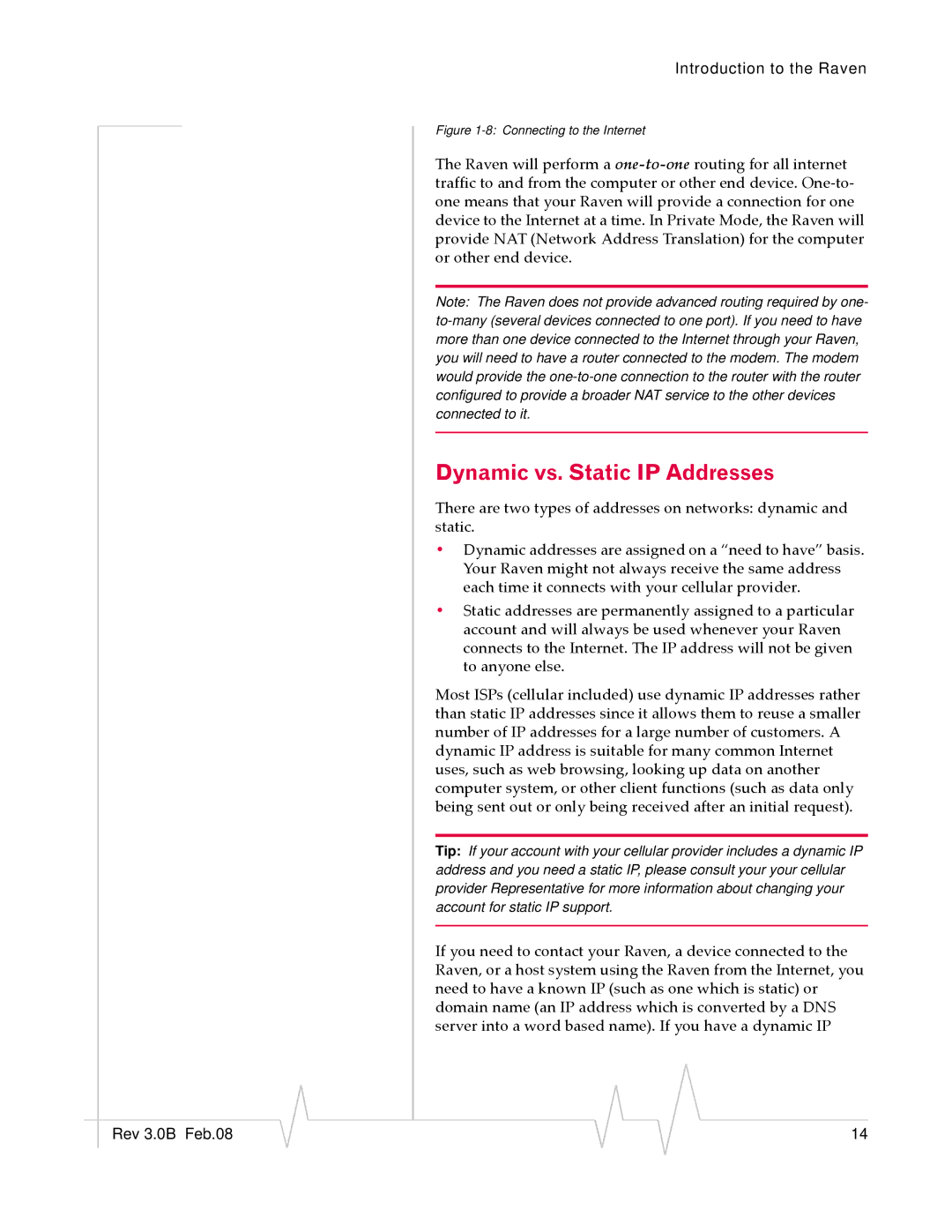
Introduction to the Raven
Figure 1-8: Connecting to the Internet
The Raven will perform a one‐to‐one routing for all internet traffic to and from the computer or other end device. One‐to‐ one means that your Raven will provide a connection for one device to the Internet at a time. In Private Mode, the Raven will provide NAT (Network Address Translation) for the computer or other end device.
Note: The Raven does not provide advanced routing required by one-
Dynamic vs. Static IP Addresses
There are two types of addresses on networks: dynamic and static.
•Dynamic addresses are assigned on a “need to have” basis. Your Raven might not always receive the same address each time it connects with your cellular provider.
•Static addresses are permanently assigned to a particular account and will always be used whenever your Raven connects to the Internet. The IP address will not be given to anyone else.
Most ISPs (cellular included) use dynamic IP addresses rather than static IP addresses since it allows them to reuse a smaller number of IP addresses for a large number of customers. A dynamic IP address is suitable for many common Internet uses, such as web browsing, looking up data on another computer system, or other client functions (such as data only being sent out or only being received after an initial request).
Tip: If your account with your cellular provider includes a dynamic IP address and you need a static IP, please consult your your cellular provider Representative for more information about changing your account for static IP support.
If you need to contact your Raven, a device connected to the Raven, or a host system using the Raven from the Internet, you need to have a known IP (such as one which is static) or domain name (an IP address which is converted by a DNS server into a word based name). If you have a dynamic IP
|
|
|
|
|
|
|
Rev 3.0B Feb.08 |
|
|
|
|
| 14 |
|
|
|
